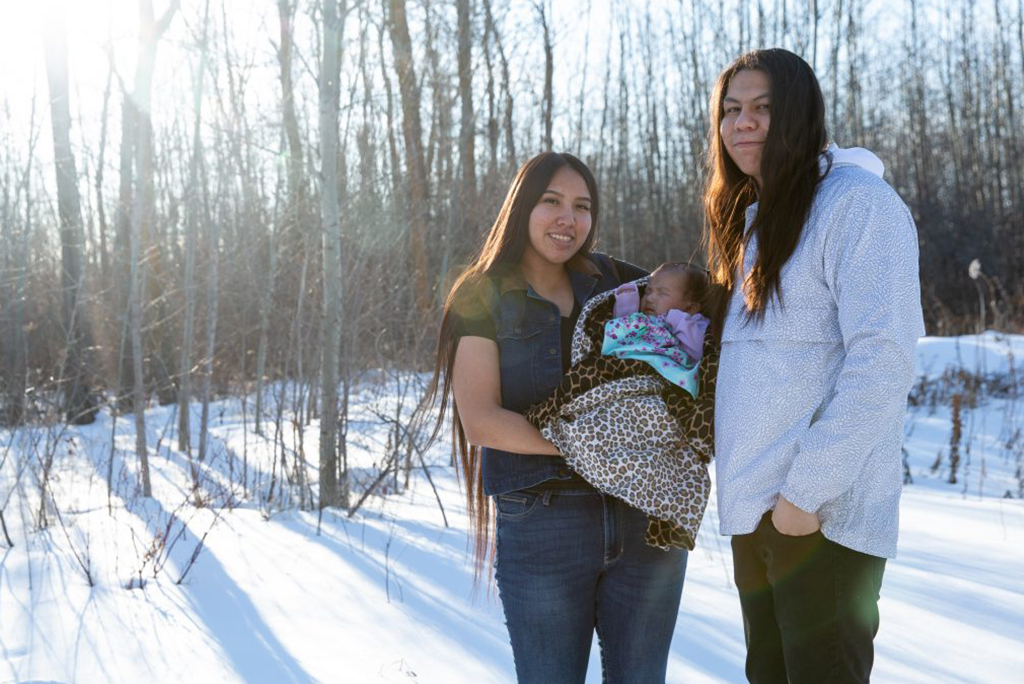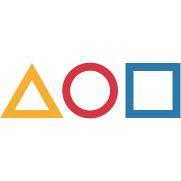“I worry about how I’m going to raise my baby, but I have my Visitor to talk to so I know I can raise him in the best way possible.”

As the youngest and fastest growing segment of our population, Indigenous children and youth represent Canada’s future.
With a firm belief that everyone should have the chance to reach their potential and acknowledging the complexity of the state of education for Indigenous children and youth in Canada, the Azrieli Foundation is proud to support the Martin Family Initiative’s Early Years (EY) program.
Led by the Rt. Hon. Paul Martin, former Prime Minister of Canada, the program is ground-breaking in its work. It is founded on the essential recognition that the future of any society depends on its ability to foster the healthy development of the next generation.
Decades of research have established the critical importance of the first few years of life in setting the stage for almost all future learning, behaviour and health outcomes.
Between birth and age three, a child’s brain forms more than one million neural connections each second. The opportunities presented during this critical life-stage are myriad, but it is also potentially a risky time, as negative experiences can significantly impact developmental trajectories extending into adulthood.
The Early Years program model was created so that it could be adapted to the needs of individual communities, respond to specific cultural contexts, and work hand-in-hand with strong existing programs. The content, implementation, and evaluation of the program model is grounded in Indigenous culture and the lived experiences of children and families with the goal of seeing the following outcomes:
- Support healthy pregnancies and maternal wellness
- Enhance children’s language development and overall school readiness
- Provide play-based learning opportunities for children
- Enrich children’s pride in identity and culture
- Strengthen parenting capacity and family well-being
The program model supports the whole child in the context of their family by targeting the social factors that affect overall wellbeing — early learning, health and social services.
Indigenous communities are involved in the development and implementation of the program, with MFI only working in communities that request their participation. The program was piloted in partnership with the Ermineskin Cree Nation and their health authority, Maskwacis Health Services. The success of the program has been phenomenal, expanding rapidly to more communities than predicted.
The first phase of the model is a home-based program, beginning prenatally and extending through the first two years of a child’s life. Visitors are the community-based staff, many of whom are mothers themselves, who are paired with new parents to walk alongside them and their families in a home-based setting. Individual visits are paired with weekly group gatherings, which centralize Indigenous culture, drawing caregivers into the child’s early learning.
In addition to home visits and group gatherings, the program seeks to increase the use of and access to existing services such as education, employment and housing.
The second phase of the program model aligns existing early childhood education services in the community with the EY programming, ensuring there is an early childhood education continuum of care available that begins prenatally until a child enters school at 4 years old.
The most recent program evaluation found that the Early Years is influencing change in the lives of children and families. Through both quantitative and qualitative data, staff and participants provided powerful examples of processes and outcomes related to relationship building and participant engagement, enriching health and wellbeing, supporting parenting knowledge and practices, strengthening families, and building capacity. The program is providing a place of safety and support for participants, including male partners, and their children.
On a daily basis, Visitors are sending the message to families that they are not alone, that they have an inherent right to care for their children, and that they can leverage supports to access the strengths that they already have in order to foster their children’s healthy development. This message of strength and resourcefulness is beginning to reverberate throughout the wider community and across the country.

“My life would be different without the program because I wouldn’t have the knowledge about child development. Now I’m healthier for me and my baby.”










